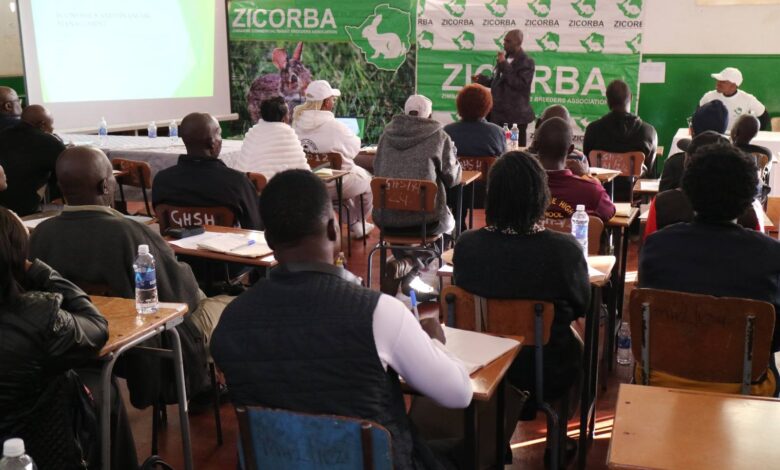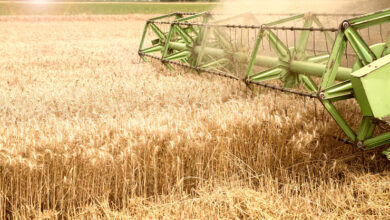Zicorba and Government Drive Growth in Zimbabwe’s Rabbit Farming Industry Through Skills Training Workshop

The Zimbabwe Commercial Rabbit Breeders Association (Zicorba), in collaboration with the Ministry of Lands, Agriculture, Fisheries and Rural Development, hosted a training workshop last week in Harare to equip livestock officers and emerging farmers with practical skills in commercial rabbit production. The initiative marks another step in transforming Zimbabwe’s rabbit farming sector into a significant contributor to the country’s agricultural economy.
Held against a backdrop of rising demand for rabbit meat, the workshop focused on providing participants with foundational knowledge in rabbit husbandry. Attendees were trained in breeding techniques, animal nutrition, health management, and strategies for accessing markets. The comprehensive training aimed to increase productivity, especially among smallholder farmers and rural communities, and to promote rabbit farming as a viable business.
Since its establishment in 2020, Zicorba has led efforts to elevate rabbit farming from a backyard pursuit to a recognised economic activity. Rabbit farming is now widely seen as a path to economic empowerment, food security, and sustainable agriculture in Zimbabwe. With minimal input requirements, fast reproduction rates, and the ability to thrive in diverse environments, rabbits offer significant advantages for farmers seeking profitable and scalable ventures.
Grace Chengeta, chairperson of Zicorba’s Harare chapter, spoke at the event, underscoring the growing importance of the rabbit value chain. “The rabbit farming sector holds tremendous potential to contribute significantly to the agricultural sector and to the broader national economy,” she said. “As demand for rabbit meat rises, so do the opportunities for farmers to benefit economically.”
She highlighted the adaptability of rabbits and their suitability for both small- and large-scale operations, calling for continued investment and awareness to help farmers unlock their full potential.
Leonard Munamati, Chief Director of Agricultural Advisory and Rural Development Services, praised the public-private partnership and emphasised the initiative’s alignment with government priorities. “This training is a critical part of our strategy to boost livestock productivity, in line with Vision 2030,” he said.
He added that the government’s focus on diversifying livestock production through the National Development Strategy 1 and the Livestock Recovery and Growth Plan includes rabbit farming as a central pillar. “Rabbit farming fits perfectly into this framework by enhancing protein availability, creating employment and entrepreneurship opportunities, and promoting sustainable farming practices, as rabbits have a low environmental footprint,” Munamati explained.
He noted that what began as a niche interest has rapidly become a structured and dynamic industry, now offering real contributions to employment, income generation, and nutritional security across the country. With over 1.8 million households potentially benefitting from the rabbit sector, the economic implications are significant.
Munamati also pointed to the emergence of value addition within the rabbit industry as a sign of rapid progress. “The country now boasts one of the largest rabbit abattoirs in Africa,” he said. “We are breaking new ground in value-added rabbit products including sausages, burgers, pies, samoosas, polony, and even rabbit pizzas. Such creativity is not only commendable; it is inspiring.”
Calling the rabbit industry a “game-changer” in Zimbabwe’s livestock economy, Munamati urged more investment and support from both public and private stakeholders. He reaffirmed the ministry’s commitment to strengthening extension services, building farmer capacity, and supporting innovation along the rabbit value chain.
“Rabbit farming is no longer just an alternative; it is now a strategic component of our livestock economy. Together, let us continue to promote it, invest in it, and support the institutions and farmers driving its growth,” he concluded.
As rabbit meat gains popularity for its nutritional value and low production costs, Zimbabwe is positioning itself as a leader in the rabbit farming space, with significant potential for local impact and export earnings.




